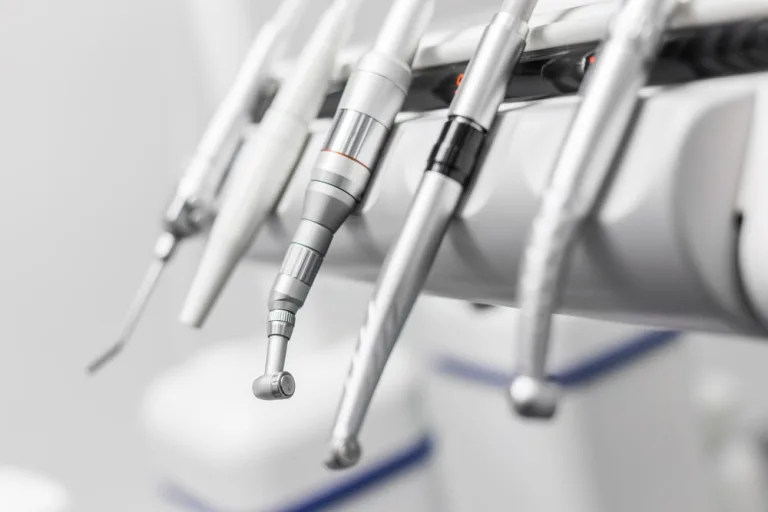Wisdom teeth, also known as third molars, are the last set of adult teeth to develop and usually emerge between the ages of 17 and 25. As a part of natural growth, these teeth can sometimes lead to discomfort or complications, particularly when there isn’t enough space in the mouth for them to fit properly. This lack of space often results in them becoming impacted, which can cause various symptoms, including pain.
Jaw pain is one of the most common issues associated with wisdom teeth, especially when they erupt improperly or become impacted. Impacted wisdom tooth pain can stem from the pressure exerted on adjacent teeth, inflammation, or infection. Recognizing the signs of wisdom teeth pain early can help in addressing any associated discomfort effectively.
Individuals experiencing persistent jaw pain may consider consulting a dental professional to evaluate the status of their wisdom teeth. Some cases may require removal to prevent further complications. By understanding the role and potential issues of wisdom teeth, individuals can make informed decisions about their dental health.
Will your wisdom teeth erupt? Do you need your wisdom teeth removed? Is your tooth pain normal or a cause for concern? R + R Dental is here to help with all of your questions and concerns. Visit our page on wisdom teeth for more details on extraction options and to book an appointment to see if you need your wisdom teeth extracted.
Identifying the Discomfort
Jaw pain is the most common reason for wisdom tooth extraction. When wisdom teeth become impacted, they can cause various types of discomfort, particularly jaw pain. Symptoms often include swelling, stiffness, pushing against other teeth, and irritation to the gum tissue surrounding the teeth.
Common Symptoms of Impacted Wisdom Teeth
Impacted wisdom teeth can lead to noticeable discomfort and mouth pain. Symptoms often include jaw stiffness and swollen gums. The gum tissue around the affected area may become tender and inflamed. Swelling can sometimes extend to the cheeks and nearby areas, making everyday activities like eating or speaking challenging.
- Pain at the back of the mouth
- Swelling or tenderness of the gums
- Difficulty opening the mouth
In severe cases, impacted wisdom teeth may lead to headaches or earaches due to the strain they put on surrounding tissues. This is particularly true if all four wisdom teeth are impacted.
Understanding Jaw Pain and Discomfort That Comes From an Impacted Tooth
Jaw pain associated with impacted wisdom teeth often arises because the teeth don’t have enough room to emerge properly. This can result in pressure inside the mouth and stress on adjacent teeth and structures. Sometimes, the pain may become more intense when chewing or biting down.
Jaw stiffness is also a common sign, making it hard to move the mouth freely. It’s essential to observe if the pain persists or worsens over time, as this might indicate the need for a professional dental evaluation. If left unchecked, the discomfort could lead to ongoing mouth pain, affecting daily activities negatively.
Reasons Behind the Pain
Jaw pain from wisdom teeth can arise due to various biological factors and complications stemming from untreated issues. These concerns often include insufficient space in the mouth and improper tooth growth angles.
Biological Causes of Wisdom Tooth-Induced Jaw Pain
If you’re experiencing pain, it is not uncommon to find your jaw is simply too small to accommodate a third set of molars. When wisdom teeth emerge, they may exacerbate jaw pain if there is not enough room in the mouth. This lack of space can force teeth to grow at the wrong angle, which might lead to crowding if left untreated.
If you experience headaches or suffer from a bad taste in your mouth, this may also be from the last molar growing in. In the upper jaw, this misalignment can sometimes cause sinus pain, adding to the discomfort. The partially impacted wisdom teeth may trap food and bacteria, leading to infections or swelling. These biological dynamics can contribute to jaw pain associated with wisdom teeth.
Complications Arising from Neglected Wisdom Teeth
If wisdom teeth are neglected, they might lead to serious oral health problems. Partially erupted teeth can create pockets that trap food and bacteria, risking decay and infection. X-rays will tell you if this is the case for you.
These conditions can intensify jaw pain, leading to more complex dental issues. Untreated wisdom teeth can cause misalignment, potentially affecting head and neck posture. This neglect may generate additional discomfort or pain in the mouth and adjacent areas if not addressed promptly.

Treatment and Management
When wisdom teeth cause jaw pain, it’s often necessary to explore treatment options. Management strategies focus on both addressing the root of the problem—often through extraction—and ensuring a smooth recovery process post-surgery to ensure your well-being.
Options for Addressing Wisdom Tooth Problems
Extraction is a common solution for wisdom tooth-related issues past a person’s late teens. An oral surgeon—not a normal dentist—typically performs this procedure. It can be simple or surgical, depending on the tooth’s position. R + R Dental offers specialized services that cater to different extraction needs. We assess if a straightforward extraction is possible or if a more involved surgical removal is required. Visit our dentistry page for a broader view of dental services.
Patients must understand potential complications if issues go untreated. These include infections, cyst formation, and overcrowding, which can negatively impact oral health. Regular dental evaluations can help identify these risks early and determine whether wisdom teeth removal is necessary.
Navigating the Recovery Process
Post-extraction recovery involves managing discomfort and promoting healing. Pain relief is often managed with both prescription and over-the-counter medications. Adhering to the oral surgeon’s guidance is crucial. Swelling can be alleviated using ice packs in the initial hours post-surgery. Most people also find it soothing to rinse their mouth with warm water.
A soft foods diet is recommended immediately after the extraction to protect the site and facilitate healing. Foods like soups, mashed potatoes, and yogurt ensure nutrition without disrupting the healing extraction site. Avoid crunchy foods during the healing process. Additionally, maintaining oral hygiene is vital while being careful not to disturb stitches or the extraction area.
Choosing Professional Dental Care
When experiencing jaw pain due to wisdom teeth, consult the professionals at R + R Dental. Our experts provide personalized care tailored to the individual’s needs, ensuring comprehensive attention to surrounding teeth and oral health. Our approach helps address issues like gum disease or tooth decay that may arise from wisdom teeth complications, especially if you have a partially erupted tooth.
A partially impacted wisdom tooth can lead to an unpleasant taste in the mouth. This may result from trapped food particles and bacteria, increasing the risk of infections and bad breath. Regular dental check-ups are crucial for monitoring these potential issues, enabling timely intervention.
In some instances, wisdom teeth may affect orthodontic treatment plans. Aligning teeth properly is important, and professional guidance helps make informed decisions about whether extraction is necessary. Our dentists can offer advice that keeps long-term oral health goals in mind.
Pain or discomfort stemming from wisdom teeth is a signal that should not be ignored. Our skilled practitioners offer effective solutions tailored to alleviate pain and maintain overall oral health. We assess each case and provide recommendations based on the patient’s conditions and needs. Contact us to schedule a consultation.



